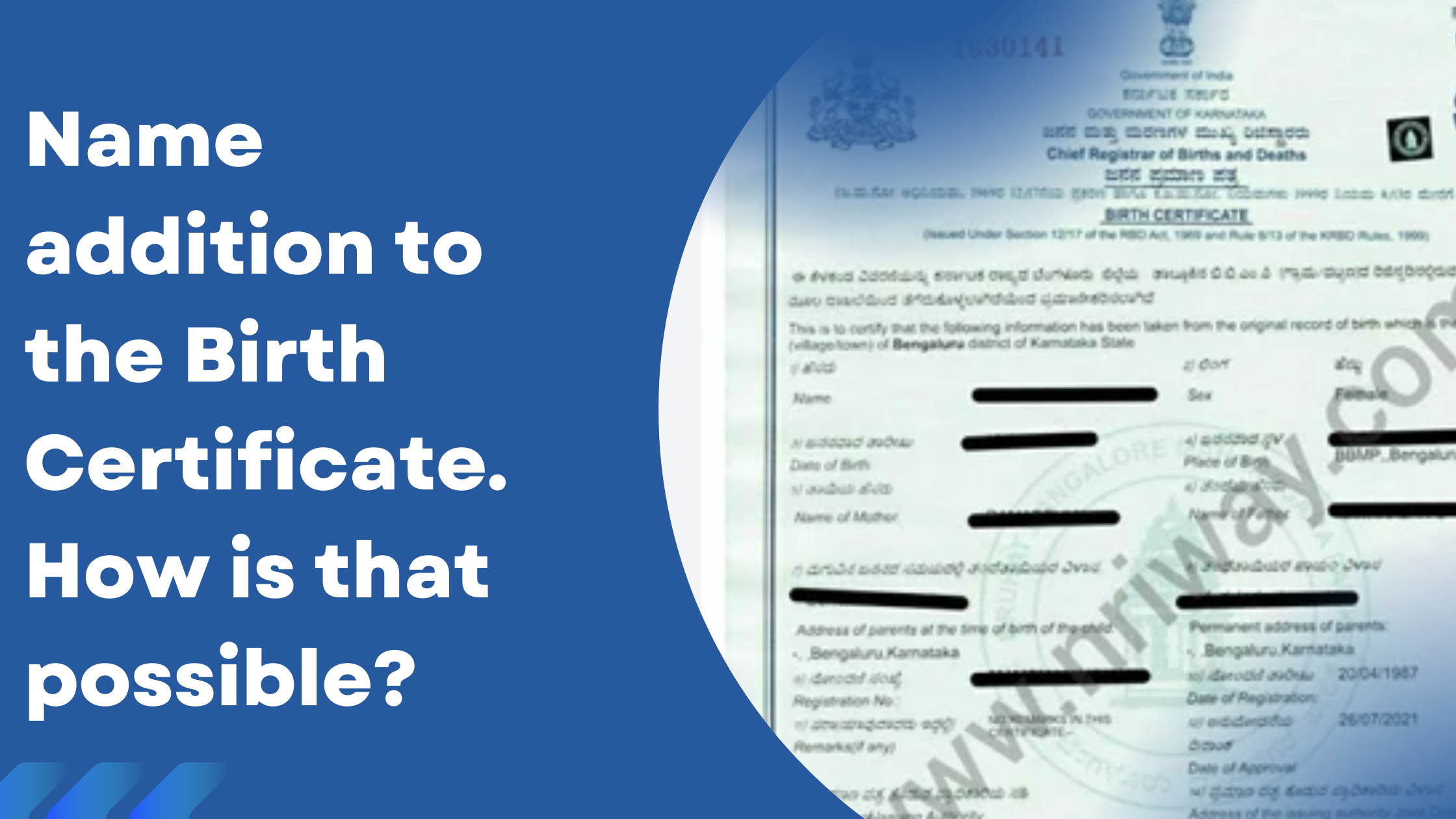The Apostille Maze: 20 Questions NRIs Are Too Afraid to Ask

Securing an apostille on your Indian documents can feel like a complicated, multi-step journey. While the basics are easy to find, the real questions—the ones that cause confusion, delays, and stress—are rarely answered clearly.
If you're an NRI or preparing to move abroad, this guide is for you. Here are 20 of the most common but overlooked questions about the Indian apostille process, explained in detail.
Apostille Basics for NRIs
1. Can I get a document apostilled from an Indian embassy abroad, or does it have to be done in India?
It must be done in the country where the document was issued. If your documents were issued in India, only the Ministry of External Affairs (MEA) in India can apostille them. Indian embassies or consulates abroad cannot apostille Indian documents.
2. My birth certificate doesn’t have my name on it. How do I get it apostilled?
You can’t apostille a certificate that’s missing information. First, request a reissued or corrected birth certificate with your name from the local registrar or municipal authority. Once that’s done, you can apply for the apostille.
3. What happens if my document is laminated? Will it be rejected?
Yes, laminated documents cannot be apostilled because the lamination blocks stamps and stickers. You’ll need to remove the lamination, which risks damaging the document. A safer option is to request a new, unlaminated copy from the issuing authority.
4. What’s the difference between SDM attestation and State HRD attestation? Which should I use?
- SDM (Sub-Divisional Magistrate): Faster, cheaper, and can be used for documents from any state.
- State HRD (Human Resource Development Department): Done by the issuing state’s department, sometimes required by certain countries (e.g., Italy, Austria).
Unless a specific country insists on HRD, most people choose SDM for speed and convenience.
5. My university is in a different state from where I live. Do I have to travel?
No. A professional apostille service can manage the process on your behalf anywhere in India. You don’t need to travel.
Specific Document Types and Their Challenges
6. Do I need the original Police Clearance Certificate (PCC) apostilled, or will a copy work?
Only the original PCC is accepted. The apostille is affixed directly to the document. Photocopies, even notarized ones, will be rejected.
7. How do I apostille my Indian divorce decree?
A divorce decree is considered a personal document. First, get it notarized, then attested by the SDM or State Home Department. You’ll need the original decree and your passport. The MEA issues the final apostille.
8. Can private school certificates or religious documents be apostilled?
No. The MEA only apostilles public documents issued by government bodies. Private or religious documents can be notarized and attested, but not apostilled. Some embassies may accept them after additional legalization.
9. What is e-Sanad and how is it different from a regular apostille?
e-Sanad is an online, paperless system for document verification and apostille. It only works if your document was issued by an authority registered on the e-Sanad platform. It’s faster but limited to certain institutions.
10. Can I apostille bank statements or employment letters for immigration?
No. These are private documents, not eligible for apostille. They must be notarized and then attested by the embassy of your destination country.
Visa, Immigration, and Other Scenarios
11. My destination country is in the Hague Convention, but their embassy is asking for attestation. Why?
The Hague Convention removes the need for further legalization after an apostille, but some embassies may ask for extra attestation for special cases (e.g., commercial documents or affidavits). Always follow the embassy’s instructions.
12. Is the apostille process different for student visas and work visas?
The process is the same, but the required documents differ. Student visas need academic records, while work visas may need marriage certificates or employment documents.
13. Do I need to apostille every page of my transcripts or just the degree?
Usually, both the degree and transcripts are required. Multi-page transcripts are often bound together and apostilled as one document. Check the requirements of the institution or authority where you’ll be submitting them.
14. Do I need an apostilled Indian birth certificate for a US Green Card or Canadian PR?
Yes. Both countries require apostilled birth certificates to verify date and place of birth. Without it, your application could be delayed or rejected.
15. Does an apostille ever expire?
No. An apostille doesn’t expire. However, the document itself may have limited validity. For example, a PCC is valid for 3–6 months, so you’ll need a fresh document and apostille after it expires.
Practical and Troubleshooting Questions
16. Can I apostille a document with spelling mistakes or wrong names?
No. Any mismatch in names or errors will cause rejection. You must correct the document with the issuing authority before applying.
17. How can I track my apostille application? What if it’s delayed or rejected?
Authorized service providers and the MEA both have online tracking systems. Delays usually happen during state or SDM verification. Rejections are most often due to lamination, errors, or missing attestations. Contact your service provider for next steps.
18. What if my university is not recognized for HRD attestation?
If your university isn’t recognized by the MEA, HRD attestation isn’t possible. In that case, you’ll need to use the SDM route instead.
19. Can I get an apostille urgently? What does it cost?
Yes, many service providers offer urgent processing. While the MEA doesn’t officially have a fast-track system, providers can prioritize your case. Expect to pay higher service charges for urgent handling.
20. How do I know if an apostille service provider is genuine?
Watch for these signs:
- They are authorized by the MEA.
- They have a physical office and valid contact details.
- They’re transparent about costs (government fees + service charges).
- They require original documents, not just photocopies.
- They don’t make unrealistic “guarantees” about timelines.
Final Thoughts
Understanding the finer details of the apostille process can save you time, stress, and money. With the right preparation—and by choosing a reliable service provider—you can handle the process with confidence and avoid costly mistakes.
Related Posts

Thank You, for subscribing to our newsletter. You will be receiving the latest updates on all our new arrivals, exclusive deals and special offers.





